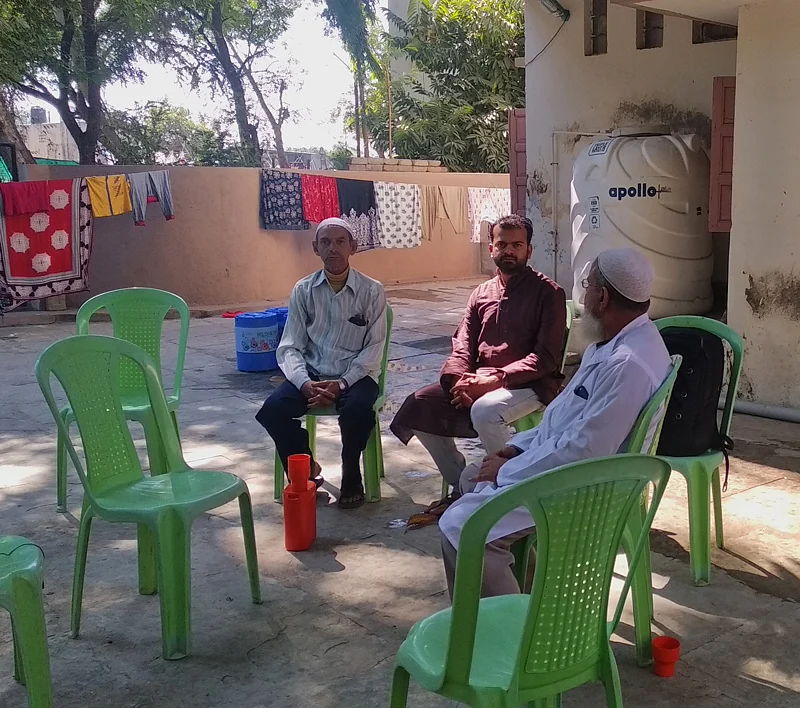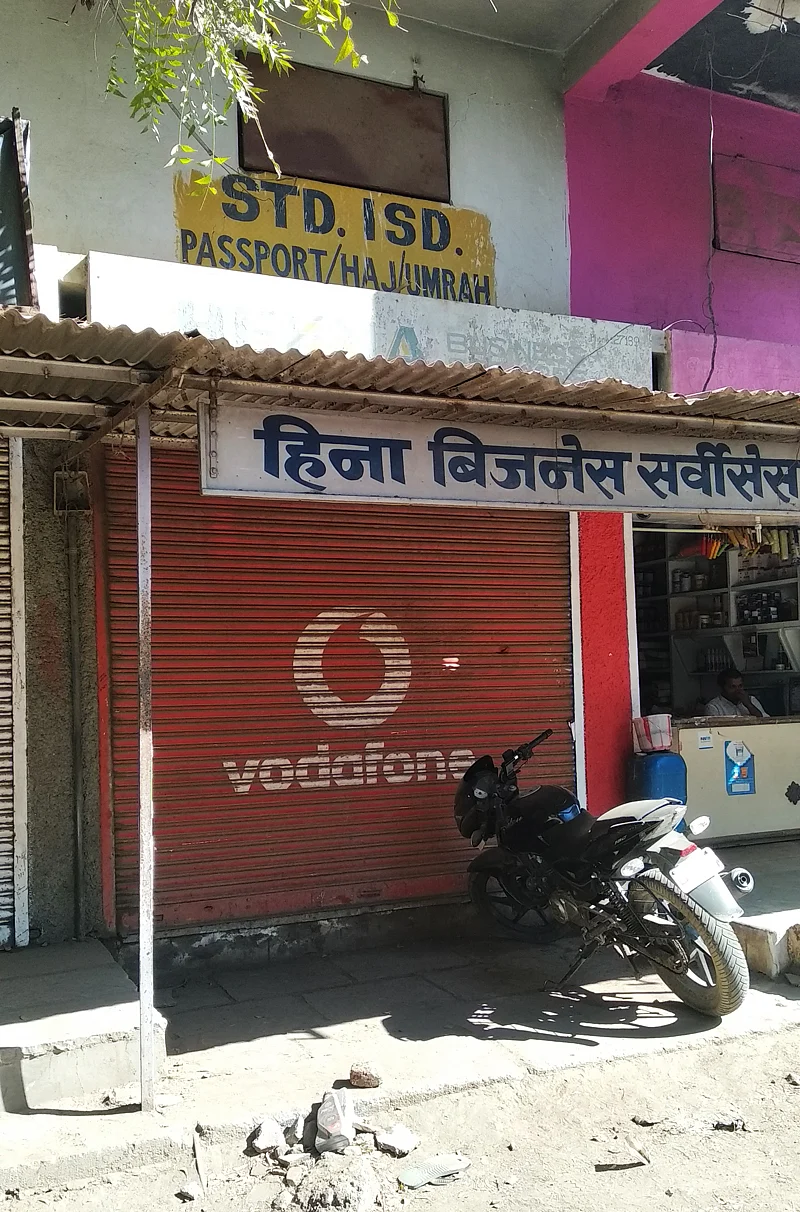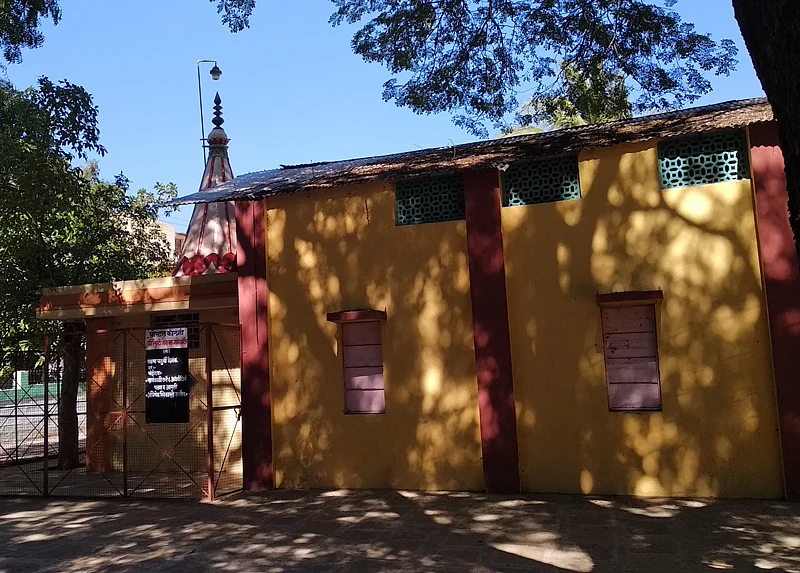Who killed Sadiq Shaikh?
After his son Mohsin's murder by the Hindu Rashtra Sena, the father searched for justice for 4 years, battling poor health, government apathy and a slow judicial system.
On the night of June 2, 2014, Mohsin Shaikh was murdered by the Hindu Rashtra Sena, an extremist group, in Pune. For four years, Mohsin’s father Sadiq Shaikh ran from pillar to post for justice. Sadiq died on December 17, 2018, of a heart blockage which was treatable—if he had money.
Mohsin and Sadiq’s story needs to be told over and over again in present India, and not just because it’s about communal conflict, blind hatred, an apathetic administration and a sluggish judicial system. But because it’s also a story about an obedient, kind-hearted boy who always kept his nose out of trouble, who studied hard and secured a job in Pune so he could give his family a better life, and who was killed in cold blood just because he was a Muslim.
It’s a story about a doting father who was crushed to hear of his beloved son’s murder, who fought a tiring battle against the administration and made more than 300 visits to Pune and Mumbai with his ailing heart to get justice.
On December 19, Newslaundry visited the house of Sadiq Shaikh in Lane Number 3 in Postal colony, Solapur. The air was thick with gloom, frustration and anger in equal amount—and hope for justice.
Thirty-one-year-old Mubeen Shaikh, Mohsin’s younger brother and Sadiq’s son, says his brother was killed by “rioters” and his father died while struggling to get justice.

“Since my brother died, our whole family was shattered. This unending struggle to get justice took my father’s life away. Less than a month ago, my father was diagnosed with three heart blockages and the doctor advised a bypass surgery. But my father said since we don’t have money to afford bypass surgery, he will get ayurvedic treatment from Hyderabad. However, the ayurvedic treatment didn’t help and my father died.”
Mubeen says he’ll never forget the night his brother was murdered. “I was working for a garment company and my brother was working with Ujjawala Enterprises as an IT engineer. A few days before his murder, he cleared the first round of interviews in Wipro Ltd and was waiting for the call for the second round. On June 2, after finishing office, we came back to our room and were sitting there. Then we went to the nearby Masjid to offer prayers.”
While returning, Mohsin told his brother he would collect tiffin from the mess and then come home. Mubeen didn’t realise that would be the last time he would see his brother conscious.
He says, “After some time, I received a call from Riyaz (Riyaz Ahmad, their roommate and friend) who was riding pillion with Mohsin when they were attacked by the rioters. Somehow, Riyaz managed to escape but my brother couldn’t. I was told by him that my brother had been attacked.” Mubeen reached the spot, only 200-300 metres from their rented room, and found his brother lying on the ground. The attackers had fled. “Some 10-15 people were standing near the spot where my brother was lying, I asked for their help to take him to the hospital but nobody came forward to help me. Later, the police came and then we took him to hospital. But he died.”
Mohsin Shaikh was only 28 years old at the time of the attack. Fifteen to 20 members of the Hindu Rashtra Sena, headed by Dhananjay Desai who is currently in Yerwada Jail, attacked him with hockey sticks and swords. His head was smashed with a stone by the group’s members, who were in the age group of 19-22.
Twenty-one people were accused in Mohsin’s murder, including Desai, and two of them are minors. Eighteen have been released on bail. Desai’s bail applications have been rejected by the court 8-10 times. One of the accused, Abhishek Chavan, was released on bail six months ago. He has since committed suicide.
The chase for an ‘assured’ government job
Mohsin was the only member of his family who was earning well at the time of his death. His father Sadiq Shaikh ran a small photocopy- STD-PCO shop called Heena Business Services in Lashkar area of Solapur. The shop has remained closed for the last eight years due to losses incurred.

Imran Naeem Shaikh, 35, is Sadiq’s nephew and Mohsin’s cousin. He says Mohsin’s death led to his uncle’s unending struggle for justice, compensation and a job for his younger son Mubeen. “Our local MLA Praniti Shinde met us, and then the chief minister Prithiviraj Chauhan. The chief minister heard us out. My uncle requested that he provide Mubeen with a job in the government sector as per his qualifications and eligibility.”
Imran says the CM assured Sadiq that a job would be provided, and also asked which lawyer the family wanted to represent the case. When the family requested senior lawyer Ujjawal Nikam, the CM immediately called him and Nikam agreed. Imran says Nikam represented them for three years but then left.
Azhar Tamboli, an activist who assisted Sadiq Shaikh in his legal battle, says Nikam first asked to withdraw in 2016 when Sanjeev Punalekar, the lawyer of the Sanatan Sanstha, appeared for the accused. “At that time Ujjawal Nikam told us that he would like to withdraw as their lawyer. He told us that some people in our community don’t have faith him. However, we told him we have full faith in him and it would look like he withdrew because of the Sanatan Sanstha lawyer. He agreed to our request and continued representing Sadiq for a year.”
Only then the family discovered from the media that Nikam had withdrawn from the case. Tamboli says, “After he withdrew, many of the accused were out on bail.” Sadiq’s nephew Imran says Nikam never gave them a reason for his withdrawal, he just said, “God is great!”
Meanwhile, the CM’s promise of a job also never came to fruition.
“Mubeen had a private job in Solapur and was earning not more than ₹7,000- 8,000, that’s why my uncle requested for a government job as per his qualifications so that they can survive after Mohsin’s death,” Imran explains. “However, that assurance of a job turned out to be a false promise. It has not been completed yet. The partial amount of ₹5 lakh of promised compensation was received in 2015. The remaining amount of the combined compensation from the Centre and state of ₹10 lakh was received less than week before his (Sadiq’s) death.” Imran says the compensation was of no use to his uncle, as they couldn’t even get his cardiac issues treated with the amount.
The CM had promised to provide Mubeen with a job on June 9, 2014. In September 2014, AD Joshi, the additional secretary of the State General Administration Department at the time, told Mubeen that a verbal promise by the CM had no value and he should have asked for a written assurance. Mubeen reasoned that he had a written order but Joshi told him that in order to give him a job, a new government resolution would have to be passed, or a new policy formulated.
Mubeen never received the job.
A father’s struggle for justice
Sadiq’s older brother, Mohammad Gaus, said in the four years after Mohsin’s death, Sadiq made at least 300 trips to Mumbai and Pune to meet lawyers and administrators. “Many a time, he travelled in the general compartment due to unavailability of reservations in trains running between Solapur, Pune and Mumbai. This took a toll on him. His financial constraints were increasing, so he used to borrow money from his friends in order to continue his struggle to fight the cases against the Hindu Rashtra Sena.”
Mohammad says the lack of resources didn’t stop Sadiq from rushing to Pune and Mumbai to appeal against the bail pleas of his son’s murderers. “He also visited the office of government administrations hundreds of times to get monetary compensation and the job for his younger son but everything went in vain. This whole struggle exhausted my brother mentally and physically, leaving him with ailments for which he didn’t have money to cure. We just want justice for our family from the establishment, and nothing else.”
Sadiq Shaik’s brother-in-law Shahnawaz Kalburgi says only a father can understand the pain of his young son’s murder. “It was his pain which kept him struggling for four years for justice. Sadiq bhai was a very decent man. He was the one who used to resolve all the issues of our family. It’s very important that he gets the justice for which he was struggling till he died.”
Shahnawaz says the events have taken a toll on his sister, Sadiq’s wife. “She is living in pain since the death of their son and is always sad about the turning of events in their lives. She has developed ailments because of the sorrowful events in their family. The media is also not following such issues properly; they just write about them when someone dies.”
At the time of Mohsin Shaikh’s funeral procession in June 2014 in Solapur, the city was engulfed in tension. Certain elements suggested staging a protest at Saat Raasta area of Solapur with Mohsin’s body of Mohsin, and were hell-bent on escalating tension in the city.
According to reports, even as he dealt with his pain and grief, Sadiq pacified the crowd and told them, “It was my son who has died in the riots and I will fight to get justice for him on my own through legal means. I don’t want anyone to do violence for my son and to disrupt the peace and harmony of our town. I have lost my son and I don’t want any family in our town to go through the grief of losing their children.”
Abdul Shaikh, Sadiq’s eldest brother, said both Mohsin and Sadiq were decent and honest people. “They never troubled anybody in their life but look what destiny wrote for them. My nephew Mohsin always used to think of the betterment of the family. In order to save money for his parents, he used to travel in general compartment; he would not even drink tea outside the house so he could save on money. He had a brilliant mind and attained his career as an IT professional on his own.”
A beloved Muslim family in a Hindu neighbourhood
About two dozen families live in Postal Colony. Sadiq Sheikh’s family was one of the two Muslim families in the area and is reportedly admired by all.

Talking to Newslaundry, Neelima Sakhre, one of the residents of Postal Colony, says, “The whole family is very nice. Sadiq Uncle had a very helpful nature: he used to help us whenever we required it. He never turned down anyone who went to his doorstep seeking assistance.”
Another resident, Bhuvneshwari Bobe, says Sadiq’s only focus was justice for his son’s murder. “He was a man who, despite losing his sons in communal riots, has never inculcated any kind of hatred towards anybody on communal lines. Everybody here admires them for their helpful behaviour.”
Avinash Shayad, who lives in the colony, says the entire situation is tragic. “Their whole family has been shattered but despite that, they are always ready to welcome anyone who comes to their house. They are very decent and simple.”
A humble student who troubled no one
When Newslaundry visited MA Pangal Anglo-Urdu High School where Mohsin Shaikh studied, the common phrase used to describe him was “humble and down-to-earth”.
Surriya Jagirdar, a teacher who taught Mohsin Marathi, has been teaching for two decades but has never come across a student like him. “He was good in studies and his character was brilliant. He never spoke ill about any student or any teacher, ever. He was fond of pens and was inclined towards reading. Even during free periods, he used to read a book. We were shocked when we heard about his death. Such a nice boy, who has never troubled anyone ever, was killed by rioters.”
Parampalli Mukhtar Ahmad was Mohsin’s class teacher in Class 9 and taught him mathematics. He says Mohsin was brilliant and talented. “He was of very helpful nature and never indulged in any kind of fight with anyone. Whatever happened to him and his family is sheer injustice. “

It’s a sentiment echoed by Ameen Quereshi, who taught Mohsin history and geography. “He was a humble boy and was progressive in thought. He wanted to do something big in life. I can guarantee you that everyone who knew him had the same opinion of his good behaviour. He didn’t have many friends but he was helpful to everyone. He never fought with anyone in this school. It’s sad that such a pious boy was targeted and killed.”
One of the teachers at the school, Iliyas Shaikh, was Mohsin’s classmate and friend. He said people like Mohsin are rare to find, and he had known him since they were young. “From high school to adulthood, his behaviour was the same—mild and humble. He always used to remain calm and never talked rubbish. I was one of his few friends. He was shy. Sometimes I feel that it was because of his good nature that he was killed. If he had been a violent person, maybe they wouldn’t have attacked him.”
Iliyas said when the news of Mohsin’s brutal death reached them, everyone in their batch was in shock and cried. “Such an incident happening to such a good person is a blot on humanity.”
The chronology of events
May 31, 2014: Defamatory pictures of Shivaji Maharaj and Bal Thackeray uploaded on Facebook sparked violence in Pune.
June 2, 2014: Mohsin Shaikh murdered by members of the Hindu Rashtra Sena in Unnati Nagar in Hadapsar at around 9.30 pm.
June 3, 2014: – Dhananjay Desai, chief of Hindu Rashtra Sena arrested but released on bail.
June 4, 2014: Desai arrested again (he remained in police custody for allegedly distributing inflammatory pamphlets in Loni Kalbhor area of Pune in March 2014).
June 9, 2014: Chief Minister Prithviraj Chavan meets Sadiq and Mubeen Shaikh and assures a government job for the latter. He asks senior lawyer Ujjawal Nikam to take the case.
June 10, 2014: Desai arrested in Mohsin Shaikh’s murder case. Within 10 days of Mohsin’s death, more than 20 accused have been arrested.
September 3, 2014: Additional Secretary AD Joshi denies Mubeen a government job stating a new government resolution has to be passed to provide him with a job.
September 2014: Sadiq Shaikh applies for compensation under a Centre scheme according to which a government resolution was passed and the state revenue department announced compensation of ₹5 lakh from the state and ₹5 lakh from the Centre.
2015: CM Prithviraj Chauhan gives the family an amount of ₹5 lakh.
May 2017: Special Public Prosecutor Ujjawal Nikam withdraws from the case
November 2018: The high court pulls up the state government, asking why Mohsin’s family hasn’t received the compensation due to them.
December 2018: Compensation of ₹10 lakh which Sadiq Shaikh had applied for in September 2014 credited into his account on December 10-11, less than a week before he dies.
